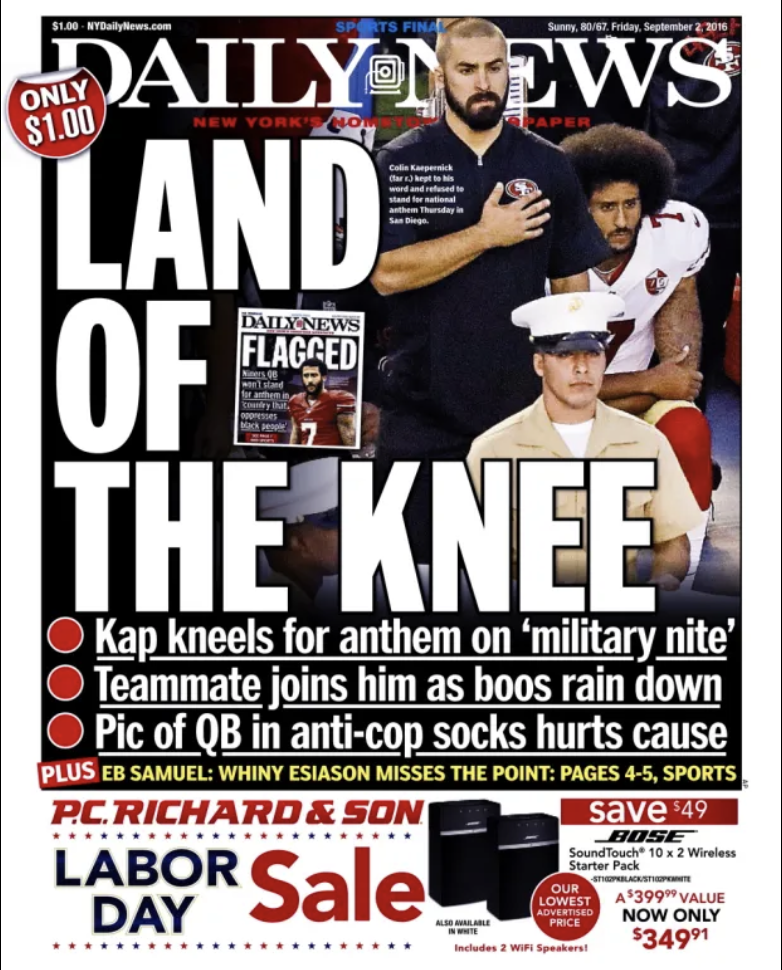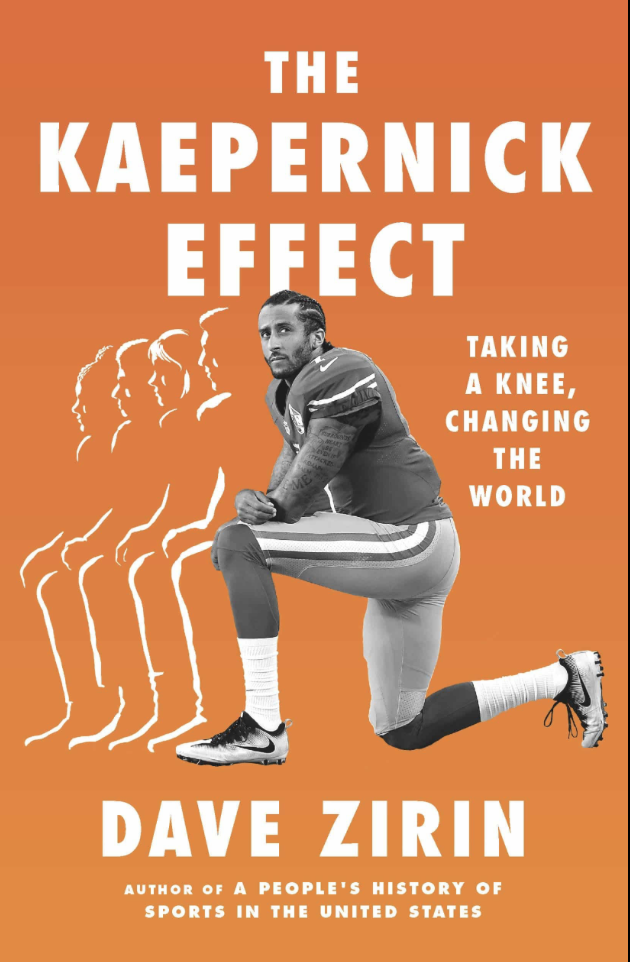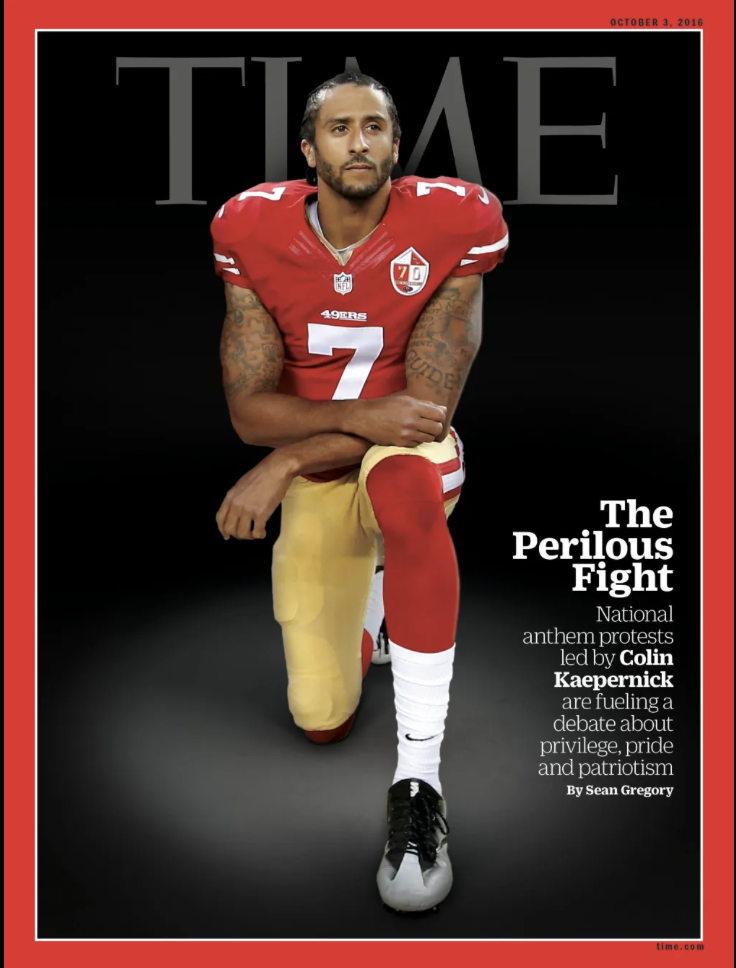“Taking A Knee: Not to Win A Game, But to Inspire Change”
Blog Prompt:
Pick one activist event in sport history – (a protest, a gesture of solidarity)… any event where individuals connected with sport made a statement about issues beyond the field of play.
After a short synopsis of the activist act and its effect on sport and society, analyze how this event was communicated. How did outside media channels cover it? How was the activism discussed on social media (if social media existed at the time)? What role, if any, did the individual or group play in shaping the media narrative of their activist act? Did the media narrative enhance or suppress the impact of the act itself?
The event I decided to choose and discuss in this blog post is the infamous knee that former NFL quarterback Colin Kaepernick took during the National Anthem, before a game, in 2016.
Synopsis:
Colin Kaepernick, former quarterback for the San Francisco 49ers, knelt during the National Anthem before a game in 2016. This was a form of protest to speak out against police brutality, which was a pressing issue around that time. Although this was not the first time Kaepernick had not stood during the National Anthem in his career, him actually kneeling during the Anthem drew massive attention to this act of activism. This event was posted all over social media, every twitter account was tweeting “Colin Kaepernick kneels during Anthem ”, and there was major outcry from both perspectives and opinions held by people of the public. Half was for the kneeling, and understood its meaning and why Kaepernick did it, which was to speak out against police brutality against African Americans.
He was quoted saying “I am not going to stand up to show pride in a flag for a country that oppresses African Americans. To me, this is bigger than football,” However, many people misinterpreted this act of protest, and felt it was disrespectful to not stand during our country’s Anthem. Many opinions were that it was disrespectful to your country, along with the men and women who have served in the armed forces. This did draw more global awareness of police brutality that was taking place, but also ended up not only fracturing the football world, but society as a whole.
For more information on the event:
This article provides a ton of information on the event, as well as a detailed description of the history behind Kaepernick’s decision and act of protest, along with quotes of him speaking on what the protest was for. This recource was extremely useful during my research for this blog. https://www.britannica.com/biography/Colin-Kaepernick

I believe that this event was communicated drastically differently compared to how activism events in sports used to be, mainly due to the power of mainstream media. When events like these took place, it would be talked about around the world, but it took time for the message to spread. Now, with our current state of technology, and our more efficient ways to consume news and communicate your opinion on the matter, this event blew up.
On all social media platforms, news channels, ESPN, and sports analysis shows, this was the only topic of discussion. Everyone had an opinion and everyone was able to speak their opinion at the click of a button. This instant ability to speak one’s opinion, caused many people to have an opinion without knowledge on why Kaepernick did what he did. People were slandering him for disrespecting the armed forces and the flag, yet that had nothing to do with it. It was a peaceful protest with the goal to bring awareness to racial injustice towards African Americans, along with police brutality. There was so much controversy surrounding this debate, that Kaepernick was soon released from the San Francisco 49ers, following many years of success as their quarterback. He has still yet to be employed by another NFL team, as many owners either opposed his actions, or didn’t want the negative media attention.


These are just a few examples of the attention Kaepernick was recieving in the media, not including the millions of tweets and social media content discussing this event. Kaepernick did try to shape the media narrative around him taking a knee. He was interviewed countless times and personally took to social media to make public statements on what he was doing, and why he was doing it. However, the response by the media was varied. People either were supporting or opposing his actions. He tried to control the narrative, and had a positive impact, but the sheer size of social media, and all of the individual accounts that make it a thing, is too large to control. I personally believe that his actions were justified and for a good cause, and that because of social media, the issue which provided purpose for the protest, was lost in debate.
Activists must be aware of the power of social media today, and how attention to detail when communicating with the public is extraordinarily important, and that sometimes no matter how much you prepare, society can shape the message into anything they’d like. Currently, Kaepernick still hasn’t been signed by an NFL team, and although that part of his life may be at a close, he has now springloaded him into a position where he is seen as a voice for activism in the treatment of African Americans in this country. A great example of how athletes can use their platform and personal brand to drive change and positively impacgt society, and not just be a regular celebrity.
